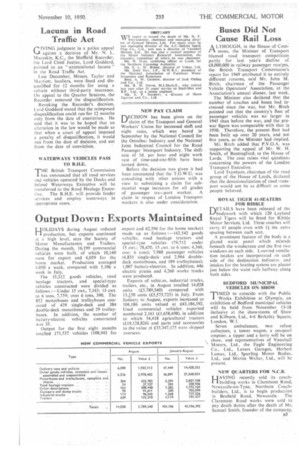Buses Did Not Cause Rail Loss .
Page 37

If you've noticed an error in this article please click here to report it so we can fix it.
A LTHOUGH, in the House of Comin mons, the Minister of Transport blamed road transport competition partly for last year's decline of £8,000,000 in railway passenger receipts, the British Transport Commission's report for 1949 attributed it to entirely different reasons, said Mr. John M. Birch, chairman of the Passenger Vehicle Operators' Association, at the Association's annual dinner, last week.
The Minister also declared that the number of coaches and buses had increased since the war, but Mr. Birch pointed out that the country's fleet of passenger vehicles was no larger in 1945 than before the war, and the prewar figure was comparable with that in 1930. Therefore, the present fleet had been built up over 20 years, and not five years, as the Minister had implied.
Mr. Birch added that P.V.O.A. was supporting the appeal of Mr. W. H. Smith, of Buntingford, to the House of Lords. The case raises vital qUestions concerning the powers of the London Transport Executive.
Lord Teynham, chairman of the road group of the House of Lords, declared that the denationalization of road transport would not be as difficult as some people believed.




















































































